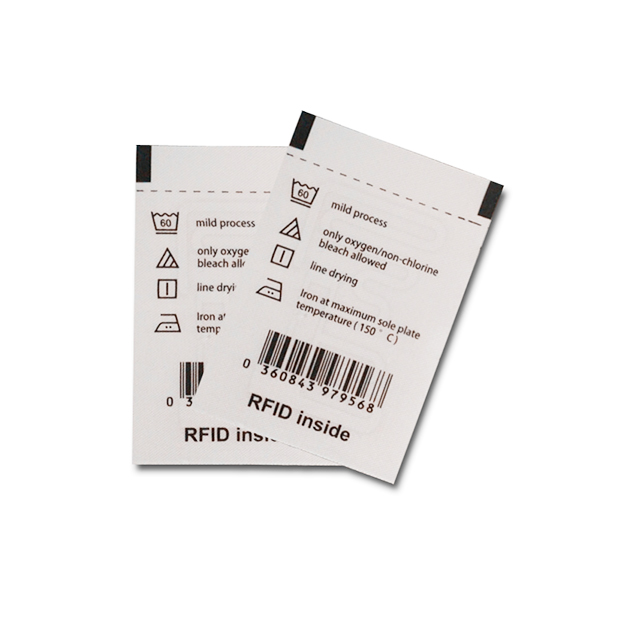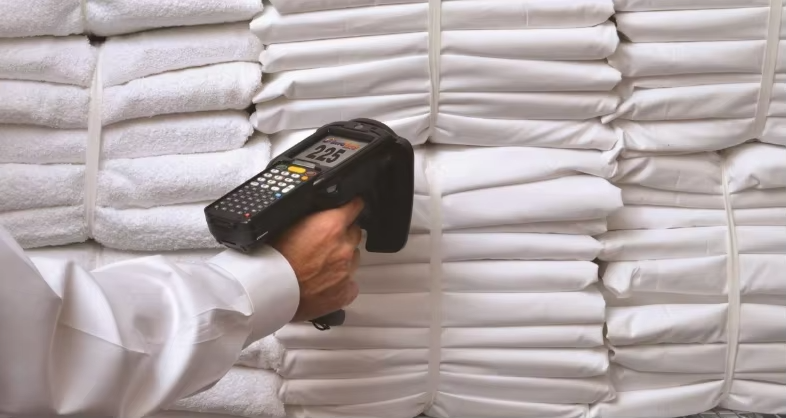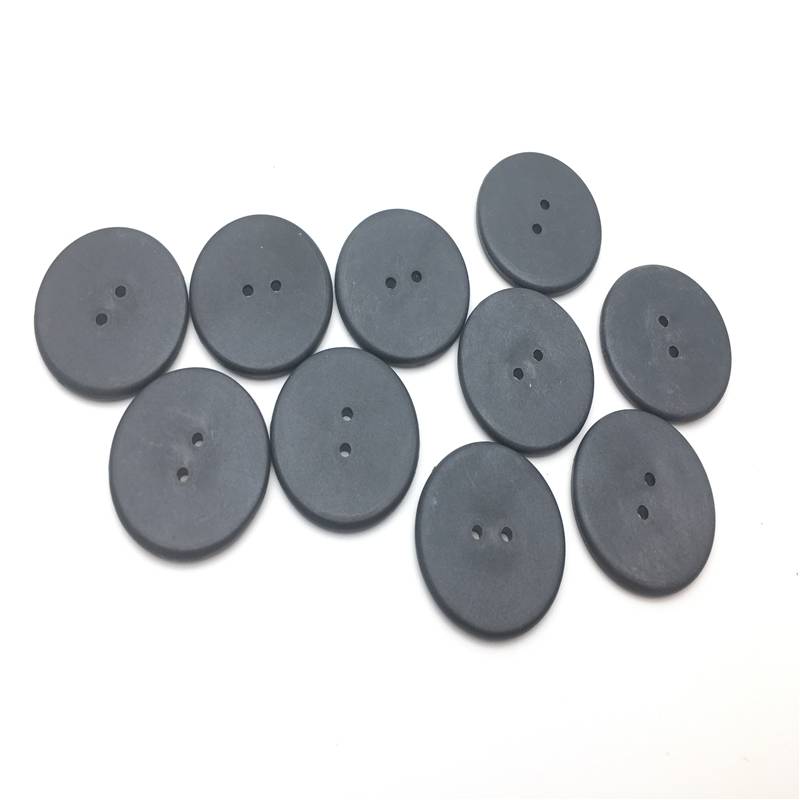
The Benefits and Applications of Laundry RFID Wash Care Labels
Laundry RFID Wash Care Labels offer a unique blend of traditional garment care information with advanced RFID technology.
With the rapid development of IoT technology, the application range of RFID technology is becoming increasingly extensive. Among the many application scenarios of RFID technology, the largest proportion is in the footwear and apparel industry. This includes production, warehousing logistics, daily store operations, and after-sales service, where RFID is widely used. Major brands like Uniqlo, HLA, and Decathlon have adopted RFID tags on a large scale to enhance supply chain efficiency.
The clothing manufacturing industry is a typical labor-intensive sector with its unique business processes and intricate procedures. Introducing RFID technology into the clothing production process allows for full tracking of the production process, providing real-time and accurate production operation data, thereby offering strong support to cope with the rapidly changing market conditions.
As people’s understanding of RFID technology deepens and the cost of RFID technology continues to decrease, its penetration in the clothing industry accelerates. Its application scenarios and stages are diversified, greatly promoting the development and evolution of RFID tags.
Typical Application: Clothing Management
RFID laundry tags are soft washing tags that can withstand over 200 industrial washes without damaging textiles. They have a good hand feel and strong stability.
Typical Application: Clothing Washing Industry
PPS RFID laundry tags, similar in shape and size to buttons, are common in the laundry industry. These tags, encapsulated with PPS plastic, have advantages such as high temperature resistance, flame retardancy, chemical corrosion resistance, high rigidity, and wear resistance.
When PPS laundry tags are used, a button-shaped (or tag-shaped) electronic tag is sewn onto each piece of laundry until it is discarded (tags are reusable but within their lifespan). This makes washing management more efficient and transparent, enhancing work efficiency.
Typical Application: Clothing Washing Industry
RFID silicone laundry tags are high-temperature resistant and durable, mainly used for tracking and checking the washing status of clothes. These tags, encapsulated with silicone, can be sewn, heat-stamped, or hung on towels or clothes for inventory management.
Silicone laundry tags are specially designed for the textile industry, laundry industry, medical logistics, and other professional fields. They are safe, non-toxic, wear-resistant, durable, and environmentally friendly.
Typical Application: Clothing Management
The application of RFID in the footwear and apparel industry is one of the largest consumers of ultra-high frequency RFID tags, primarily in the form of copperplate paper RFID tags. The application of RFID technology in clothing hang tags can achieve anti-counterfeiting, traceability, circulation, and market control, protecting corporate brands and intellectual property and safeguarding consumers’ legitimate rights and interests.
Typical Application: Clothing Pallet Management
ABS RFID tags are common injection-molded tags used in logistics management scenarios. They can be installed on metal, walls, wood products, and plastic surfaces. Due to their robust protective features, high-temperature resistance, and moisture resistance, they are suitable for harsh working environments.
Typical Application: Clothing Warehouse Management
Cable tie tags are generally encapsulated with PP + nylon material, offering easy installation and removal, waterproof, and high-temperature resistance features. They are often used in the clothing industry for logistics tracking and asset management.
In conclusion, the integration of RFID technology in the clothing industry has revolutionized various aspects of the sector, from production and warehousing to retail and after-sales services. The diverse range of RFID tags, including RFID laundry tags, PPS laundry tags, RFID silicone laundry tags, copperplate paper RFID tags, ABS tags, and RFID cable tie tags, demonstrates the versatility and adaptability of RFID technology in meeting the unique needs of the apparel industry. These tags enhance operational efficiency, improve inventory accuracy, and provide real-time data that supports decision-making processes. As the cost of RFID technology continues to decrease and its applications expand, its adoption in the clothing industry is set to accelerate, driving further innovations and efficiencies. Major brands have already shown the way, and it is expected that more companies will follow suit, leveraging RFID to stay competitive in an ever-changing market landscape.
Newest trends and common knowledge in RFID laundry tags.

Laundry RFID Wash Care Labels offer a unique blend of traditional garment care information with advanced RFID technology.

The adoption of UHF RFID laundry tags is increasingly common across various industries, including healthcare, hospitality, and industrial laundry services, enabling uniform rental operations to effectively manage costs.

RFID technology has revolutionized various industries, and in the realm of laundry management, the 125Khz RFID laundry tag stands out as a robust solution for tracking garments and linens through their lifecycle.
Didn’t find what you want? Ask our manager for help!